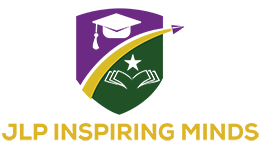
It is during the preschool years that children make great strides in growth and development. It is vital that during this time, they have contact with warm, caring adults who encourage them to make good choices and teach them appropriate behavior limits.
Parents who know how vital this age is often feel overwhelmed when it comes to choosing the right preschool for their child, We have compiled a checklist to guide you and help you spot a quality preschool program that you can trust your child to.
The Key Elements Of A Quality Preschool
A good preschool can enhance your child’s growth and development, but a poor-quality preschool can have the opposite effect. Here is a basic preschool checklist to help you make the right decision:
- Qualified teachers.
- Age-appropriate activities.
- Age-appropriate class set-up.
- Quality teaching program.
Qualified Teachers
Preschool teachers need to undergo formal training. The approved teacher education program includes:
- Complete all the necessary requirements to become licensed in Florida.
- Complete all DCF 45 required classes and testing.
- Have CPR & First Aid.
- Complete a background screening.
- If an associate or bachelor’s degree is applicable, then accepted.
- Be able to take or receive any additional classes required.
Teachers should also love working with children and possess the following characteristics:
- A positive and caring attitude. They should smile often, have a natural nurturing ability, and comfortably engage in appropriate physical contact.
- They should have good communication skills, being able to communicate at a child’s and adult’s level.
- They must be able to positively guide behavior with appropriate discipline and conflict resolution methods.
- It must be evident that children feel safe and that they trust their teacher.
Age-Appropriate Activities
The activities at a preschool should be structured but fun. They should also be designed to allow teachers to detect any physical or emotional problems early. The activities should encourage children to:
- Play and explore, both in groups and as individuals.
- Think and problem-solve.
- Grow academically.
- Develop social and communication skills.
An Appropriate Classroom Setup
A preschool classroom is a structured environment designed with small children in mind. Every classroom needs to take the following into account:
- Safety.
- A variety of play styles.
- Children’s independence.
- Behavior management.
Safety
When designing a preschool classroom, safety must be prioritized. When inspecting the classroom, the following must be evident:
- The classroom is open plan. All children must be visible at all times. The toilets can be behind a low wall for privacy purposes, but the teacher must be able to look over the wall easily.
- The tables and chairs must be low enough for children to reach easily. They must be sturdy and, if painted, painted with non-toxic paint.
- All furniture must have rounded corners.
- All toys must be age-appropriate and in good condition.
- Electrical cords must be out of sight. Electrical outlets must have safety covers.
- All hazardous substances must be locked away, out of reach.
- The classroom must be spacious, have good ventilation, and be clean.
A Variety Of Play Styles
Preschool classrooms must accommodate both individual and group play. Demarcating different areas for different activities encourages children to explore alone or in a group. Examples of demarcated areas include:
- Reading corner.
- Art corner.
- Dress-up corner.
- Cooking corner.
- Science corner.
- Relaxing corner.
Children’s Independence
The classroom must encourage children to do things for themselves. The shelves must be low and accessible so that children can collect items/pack them away themselves.
Behavior Management
The more there is to do, the less likely children are to get bored or destructive. Having a fun, interesting classroom encourages children to interact with each other as well as take care of their surroundings. These are both areas where teachers will have the opportunity to redirect inappropriate behavior.
A Quality Teaching Program
A preschool program’s primary goal must be to help children develop positive relationships with peers and adults alike. A preschool curriculum must be based on what children should know and be able to do so it is continually assessed and adapted. Signs of a good quality preschool program are.
A Positive Relationship Between Teachers And Families
The teacher must have good communication skills and build a trusting relationship with the families. Teachers must:
- Listen to and take note of parents’ goals and concerns.
- Show respect for all regardless of language or culture.
- Encourage families to participate in the program in as many ways as possible.
A Well Planned But Adaptable Curriculum
The curriculum’s primary outcome must be based on positive childhood development. This is achieved by:
- Setting reachable goals and making every effort to assist children to attain them.
- Balancing group and individual activities.
- Giving children enough time to achieve the goals.
- Paying attention to individual’s goals and needs and adapting the program where necessary.
Continuous Assessment Of Development And Learning
The teachers must assess the children’s learning and development continuously. These observations must be recorded and communicated with the parents regularly. Some areas teachers will take note of are:
- Things the children say and do. How they play with peers, relate with teachers, and deal with conflict.
- Samples of writing and drawing.
- Photos of things they have made. (where possible).
Teachers may Recommend further screening tests if developmental issues become evident.
Inspiring Minds Preschool, The Quality Preschool Program In South Florida
At Inspiring Minds Preschool, our aim is to empower and develop a growth mindset while encouraging creativity, personal development, and self-confidence.
To arrange a tour of our facility, contact us at 954-933-2982 or info@jlpinspiringMinds.com
